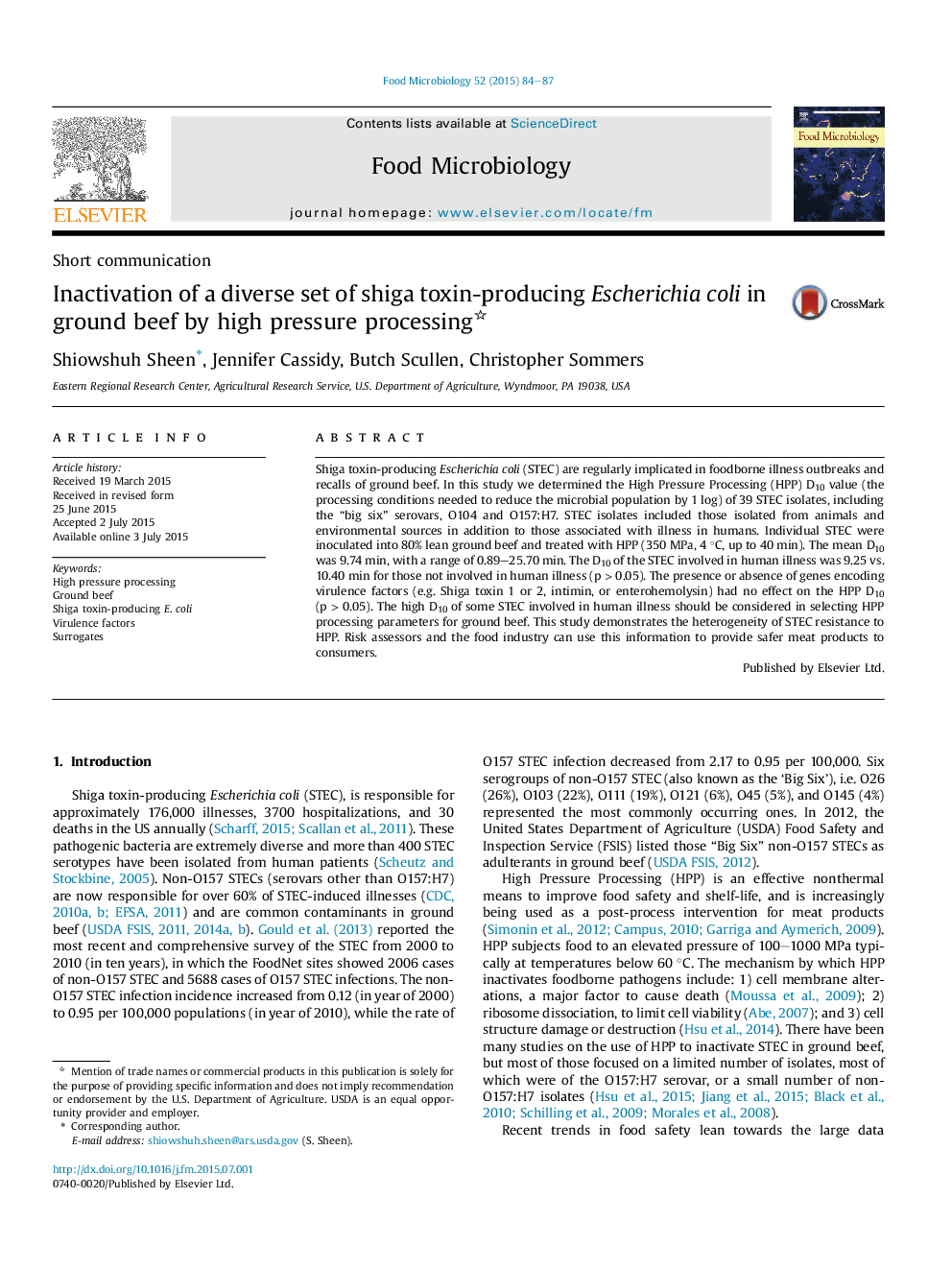| Article ID | Journal | Published Year | Pages | File Type |
|---|---|---|---|---|
| 6288443 | Food Microbiology | 2015 | 4 Pages |
Abstract
Shiga toxin-producing Escherichia coli (STEC) are regularly implicated in foodborne illness outbreaks and recalls of ground beef. In this study we determined the High Pressure Processing (HPP) D10 value (the processing conditions needed to reduce the microbial population by 1 log) of 39 STEC isolates, including the “big six” serovars, O104 and O157:H7. STEC isolates included those isolated from animals and environmental sources in addition to those associated with illness in humans. Individual STEC were inoculated into 80% lean ground beef and treated with HPP (350 MPa, 4 °C, up to 40 min). The mean D10 was 9.74 min, with a range of 0.89-25.70 min. The D10 of the STEC involved in human illness was 9.25 vs. 10.40 min for those not involved in human illness (p > 0.05). The presence or absence of genes encoding virulence factors (e.g. Shiga toxin 1 or 2, intimin, or enterohemolysin) had no effect on the HPP D10 (p > 0.05). The high D10 of some STEC involved in human illness should be considered in selecting HPP processing parameters for ground beef. This study demonstrates the heterogeneity of STEC resistance to HPP. Risk assessors and the food industry can use this information to provide safer meat products to consumers.
Keywords
Related Topics
Life Sciences
Agricultural and Biological Sciences
Food Science
Authors
Shiowshuh Sheen, Jennifer Cassidy, Butch Scullen, Christopher Sommers,
